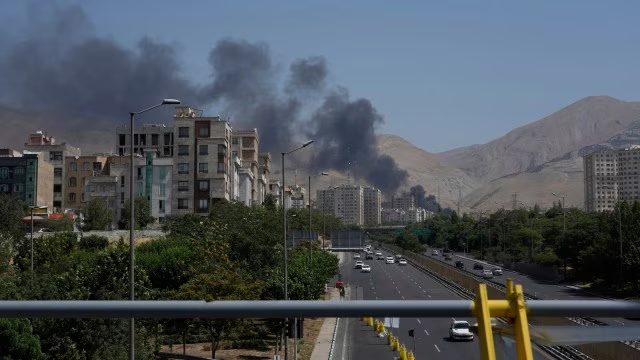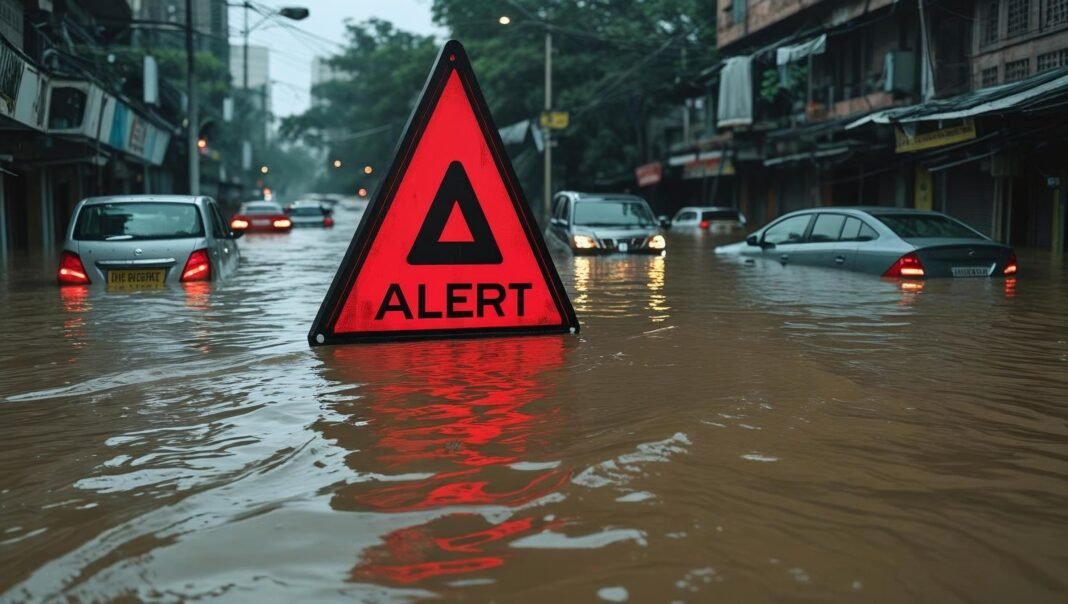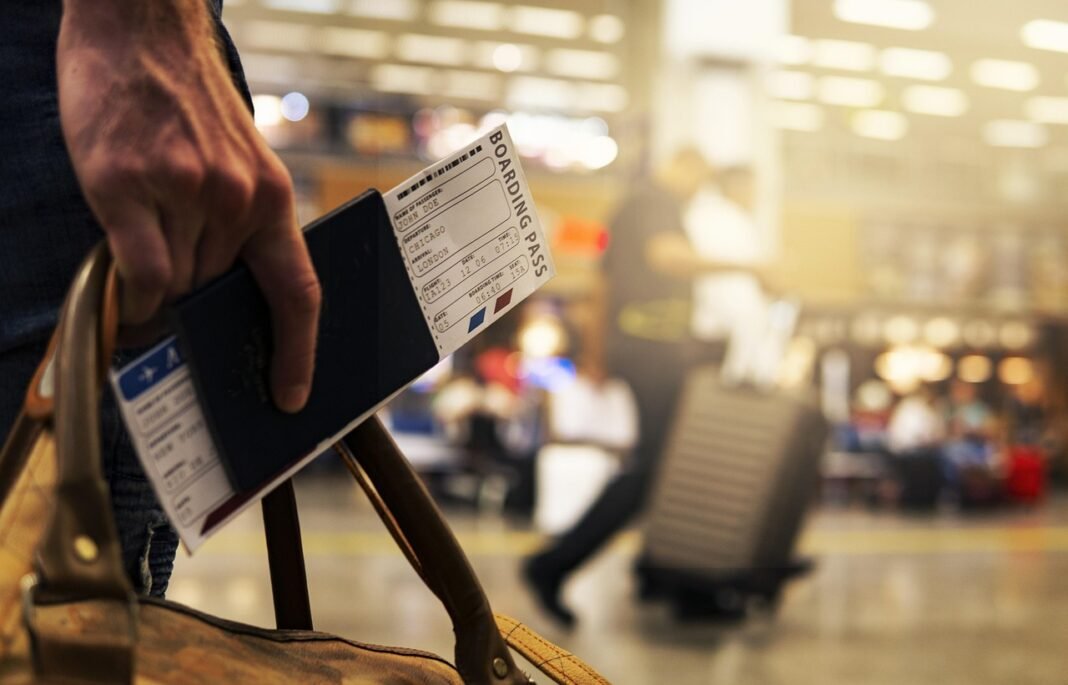As tensions rise between Iran and Israel, Indian students studying in Iran find themselves trapped in a conflict not of their making. Sleepless nights, missile sirens, and fear have replaced lectures and study sessions. With increasing desperation, they are calling on the Indian government for evacuation. This isn’t about politics for them – it’s about surviving and returning home safely before it’s too late.
A Life on Edge
“We have not slept for three nights,” said the Indian student in Iran, a description of the nail-biting environment in which they are now living. The noise of missiles, sirens and explosions now replaces the usual classroom chatter and study periods. Their dormitories, once a place of learning and rest, now feel to the students more like a war shelter.
As per several media reports, including ANI, the students have been living in fear amid the intensifying violence. With Israeli strikes said to be hitting different parts of Iran, students sense that danger could come from any part, at any moment.
“It’s no longer safe here,” said another student who asked to remain anonymous. “We came here to be doctors, we came here to study, we came here to make a future. Now, we can’t even say whether we’ll make it to next week. Every noise outside sets our hearts racing.”
Distress Calls and Video Appeals
Indian students based in various cities of Iran, including Tehran and Qom, have started issuing desperate pleas over videos being circulated on media platforms and social media. In these clips, young men and women describe sleepless nights, dwindling supplies, and growing panic. They beg for urgent evacuation by the Indian government, saying they feel marooned in a war zone.
- Students stuck in dorms and apartments for days
- Supermarkets operating with limited hours
- Difficulty accessing basic supplies like food and medicine
“We’re running out of food. We’re afraid to leave our homes; we don’t know what will happen. We’re asking of our government – please evacuate us,” said a student from Qom.
Mixed Signals and Delayed Communication
The clear communication and ongoing updates are what are not making it happen; they’re not living up to that.” While the Indian Embassy in Tehran has mounted general advisories urging Indian nationals to stay indoors in the country and travel sparingly, many students see the danger level as warranting more than caution.
“There’s a big difference between remaining calm and being safe,” said one student. “Saying to us, stay in your homes and missiles don’t fall – it seems like it’s not really a solution. We need some tangible steps and clear plans, and to know how long it’s going to take to evacuate.”
Multiple students had filed emails to embassy officials, but said they had received slow, if any, responses – and those that have come were vague, they said. The torture caused by the lack of information is frustrating for these families.
Psychological Trauma Mounting
It’s not merely the physical threat from missile attacks. Many are already starting to display symptoms of psychological trauma – panic attacks, debilitating anxiety, insomnia and burnout. Concern is on the rise over their mental health amid the continued fighting.
“We don’t sleep anymore, any of us,” one student said. “We keep looking at our phones, anticipating news. Even if there’s quiet outside, our minds are not still. We’re scared every minute.”
Video clips of students holed up in dorm rooms are shared as they huddle together, attempting to help one another, praying and making lists of emergency contacts. It’s unclear how long that library would be shuttered at the Basilica, where construction was underway last week, a university spokesman said.
“It’s difficult to explain what it’s like to be so far from home and shackled to a place with little visibility into the future,” another medical student said.
A Growing Community in Peril
More than 2,000 Indian students are studying medical and paramedical courses at various Iranian institutions. Though not all are living in immediate high-risk zones, many are based in or near Iraqi cities that have been engulfed by the escalating conflict.
Tehran and Qom have significant Indian student population and the threat is even more there. It’s not only physical safety that has so far been a cause for fear, but also the disruption of academics – and long-term future.
“We have lost weeks of instruction already. Our exams have been postponed. And we don’t even know if our degrees will be accredited if we leave,” one student said.
The choice of whether or not to remain isn’t just about safety anymore – it’s about their careers, their finances and their emotional well-being.
Also read, Alarming : Mumbai Monsoon Red Alert, Delays and Flood Poise
Government Response and Evacuation Efforts
The Indian government has by now rescued over 110 citizens from Iran as the crisis deepens. It said these evacuations had been facilitated through “diplomatic consultations and special flights”. But the wealthier students can afford the others and the poorer kids in smaller cities, or in poverty-stricken straits, are left with limited options.
The MEA has said that it is “closely monitoring” the situation and that they are working with the Indian Embassy in Tehran to arrange for more evacuations. But students say that it is getting late.
“It is being discussed that we should be evacuated, but it is time for concrete action,” one student said. “Not everyone can afford a ticket to relocate to safer cities or buy tickets to safe cities. It must be a shared, state-led evacuation plan.”
Some students have also contacted MPs in India, urging them to take the issue up in Parliament. Petitions have been circulating on social media platforms; with hashtags such as #EvacuateIndianStudentsFromIran, demanding rapid and transparent work on the ground.
The LostDiplomacy account: The Delicate Line Between Diplomacy and Urgency
The Israel-Iran conflict is diplomatically a sticky issue for India. It has close ties to both countries and has so far remained neutral, calling for restraint on all sides.
This dispassionate, however, gets murkier when it involves the security of Indian citizens over-seas. The students and their families argue that whatever the diplomatic “tabligh” the human lives should be foremost priority.
“Politics aside, we are just students,” said one young woman studying in Qom. “We’re not part of this war. We just want to come home.”
Toll on Families At Home
As students grapple with fear and uncertainty in Iran, their families in India are fighting their own nightmare. Many parents say they cannot sleep, obsessively checking their phones for updates. Placing calls to children has become both a matter of routine and an emotional ordeal.
“My son is telling me that he is fine, but I can hear fear in his voice,” added a parent in Lucknow. “I don’t know what else to do but pray and keep calling.”
Local leaders have received letters from a number of families asking them to intervene and ask the central government to launch rescue operations.
A Plea for Help, Not Politics
And the message from Indian students in Iran is clear – this is not a political issue for them. They are not calling for people to take sides in a geopolitical battle. What they are seeking is safety, dignity and an opportunity to return home.
Many have ended up stranded in a country that is rapidly becoming unsafe for foreigners. Although the Embassy has not yet closed and still issues advisory notes to students, they feel that the time has arrived to evacuate them collectively.
“We don’t want to point fingers,” one student said. “We just need someone to listen to us. We want to return to our families. We want to be safe.”
Also read, Kedarnath Helicopter Crash: 7 dead as Kedarnath-bound chopper with pilgrims crashes in Gaurikund
Hope and Courage in the Time of Fear
And even in desperate moments there are expressions of solidarity and resolve. Students are supporting each other through panic attacks, sharing food, distributing medicine, and staying in touch.
Several faculty members in Iranian universities have also contacted the students to offer emotional support and let them know they are not alone. In times of crisis, these small acts of kindness can mean a lot.
Even so, students say emotional strength is no protection against bombs and missiles. What they require now is immediate action – flights, coordination, a route home.
Conclusion
The voices of Indian students stranded in Iran, a hotspot in the escalating conflict, come through loud and clear and they are emotional and very human. They Are The future doctors, young minds trapped in a perilous system that isn’t of their own making. Their request is simple – rescue them before it’s too late.
The Indian government’s early evacuation measures are a beginning, but more will have to be done, and more quickly and more transparently. These students deserve more than silence and advisories – they deserve protection, preparation and safe passage.
As airstrikes ramp up and days turn into sleepless nights, the world cannot look away. Each voice emanating from Tehran or Qom is a poignant reminder of the fact that behind every geopolitical flashpoint are real lives, real fears and real families clinging to the hope that one day their loved ones come home.
FAQs
What is the current condition of Indian students in Iran?
They are facing fear, uncertainty, sleeplessness and food shortages amid escalating military tensions. Many are pleading for urgent evacuation.
Has the Indian government begun evacuations?
Yes, over 110 Indian nationals have been evacuated. However, many students in smaller towns or without means are still waiting for coordinated help.
What are the main concerns students have voiced?
Lack of clear communication, insufficient supplies, mental health issues, disruption to education, and safety threats due to bombings.
Why is this evacuation complicated diplomatically?
India maintains strategic relationships with both Iran and Israel. Balancing diplomacy with citizens’ safety creates challenges for swift action.
What are students requesting from authorities?
A state-led, inclusive, and immediate evacuation plan that ensures no student is left behind due to financial or logistical constraints.
Reference
Stay updated with all the latest news and insights – News Of US






